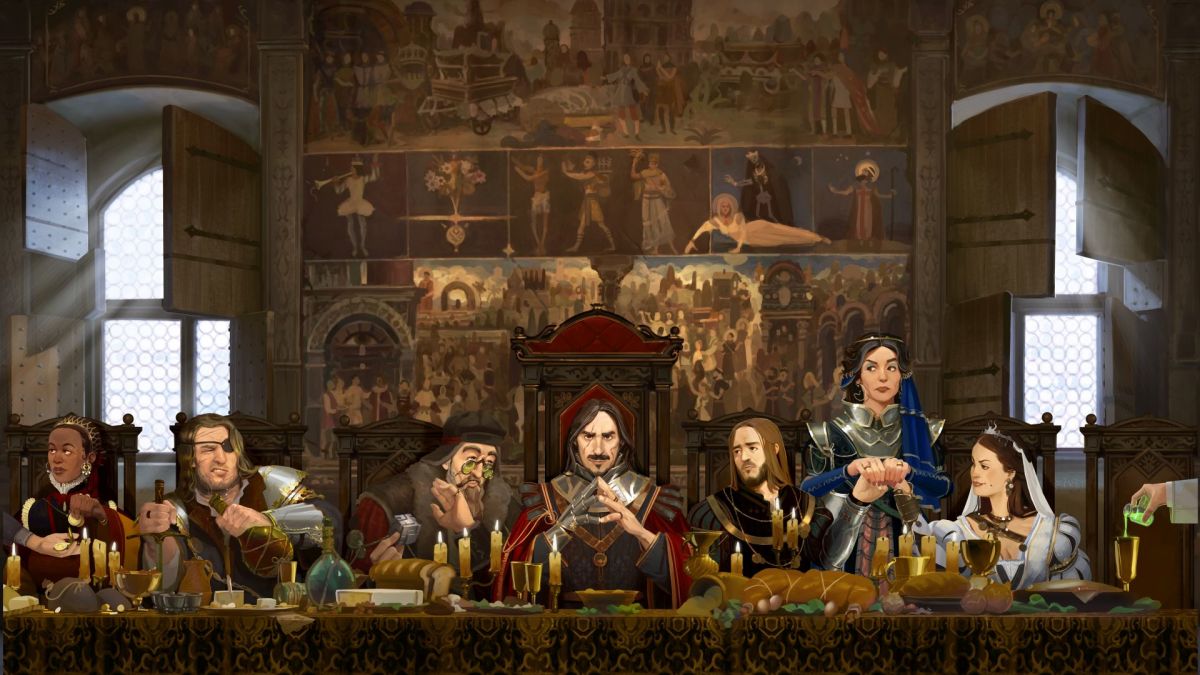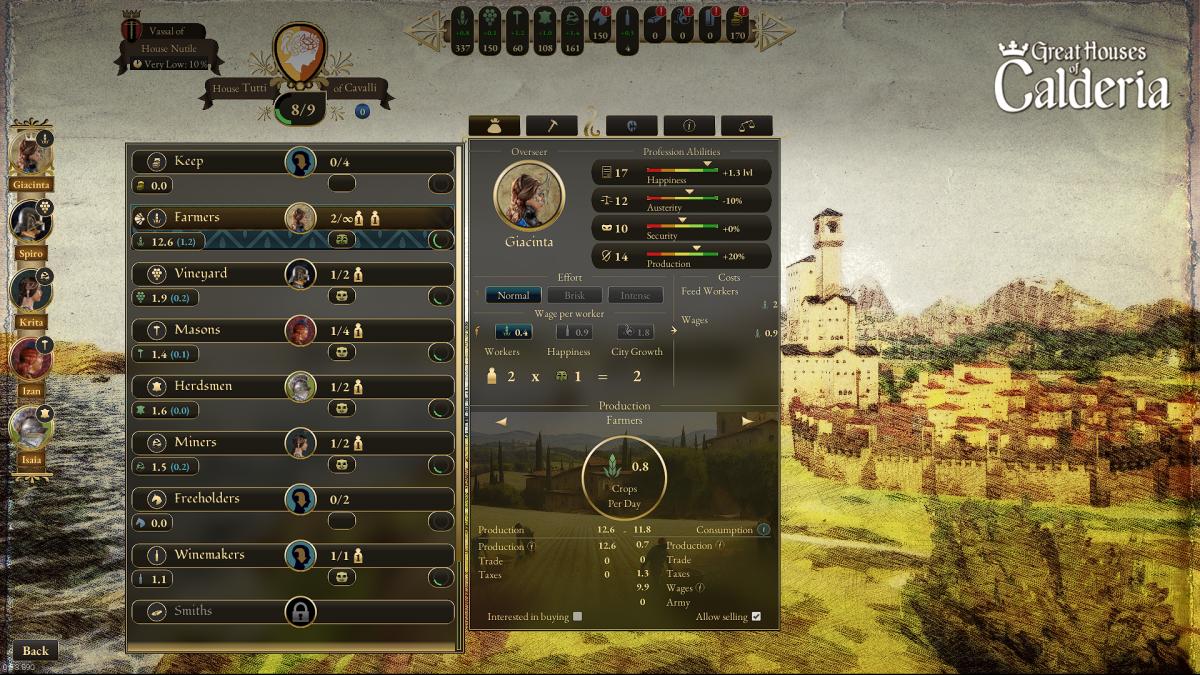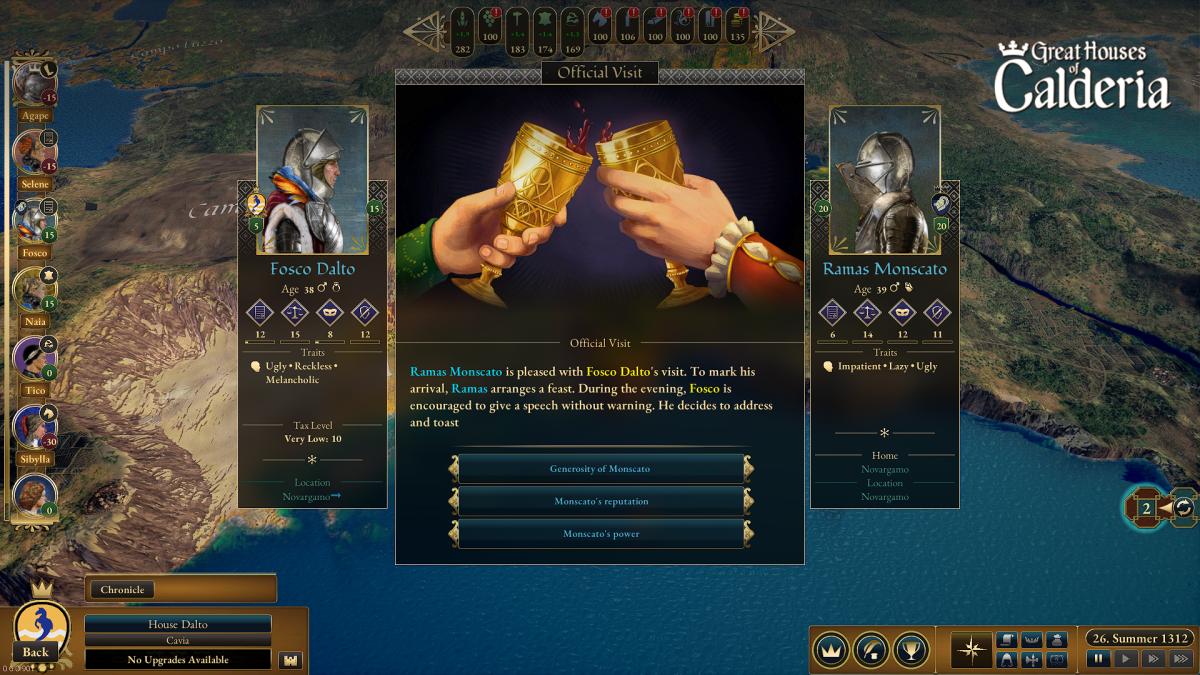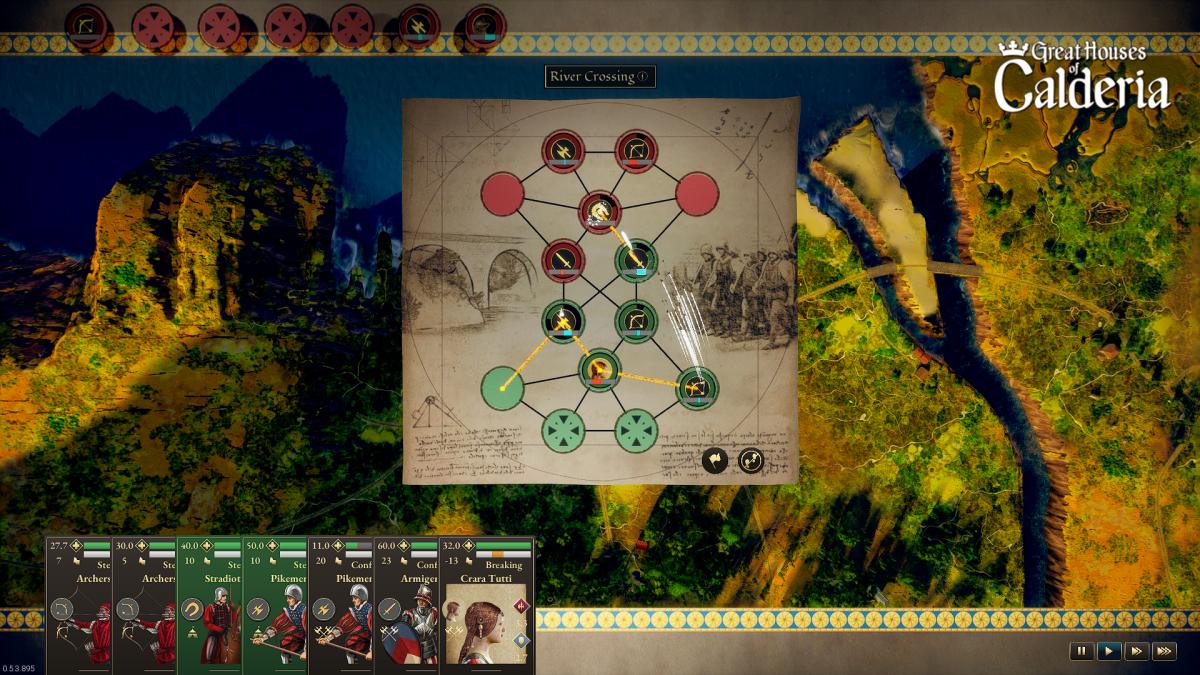Great Houses of Calderia is a fresh take on the Crusader Kings formula, but fails to click for me as yet

Paradox Interactive’s Crusader Kings series has had a remarkable effect on the strategy game market over the last couple of years. Whenever RPG-like mechanics and events are put into a strategy game and you ask the developers about them, they’ll tell you that Crusader Kings was the inspiration for those features. It’s all the more surprising, then, that there haven’t been any earlier attempts at taking on the entire formula instead of just adapting singular elements from it.
That, at least, has changed with the Early Access release of Great Houses of Calderia on August 30, 2023. Made by Resistance Games and published by Firesquid, this grand strategy may be the first true attempt of challenging Paradox Interactive’s cult classic in its own arena.

Great Houses of Calderia is not historically grounded in the way Crusader Kings is. Instead, it’s set in a fantasy world, more specifically the continent of Calderia. This continent once housed a great civilization that was wiped out somehow and is now being resettled by noble families from another realm – one of which is yours. After setting up the game by choosing your start position and starting head of the house, you enter a familiar bird’s eye view of a landmass, which offers a good amount of playing space, but pales in comparison to Crusader Kings’ map.
In contrast to Paradox’s game, you can’t start as a grand ruler in this game – you always begin as a lowly baron, working your way up through the ranks of nobility. There are also special court positions you can gain during a regular conclave held by the viceroy of Calderia, the ruler of this colonial realm. Even barons can gain these special positions, which grant important bonuses, though it’ll require some diplomatic skills to get your peers to vote for you.

Achieving your objectives through a mixture of war, diplomacy, and intrigue – Great Houses of Calderia shares that with Crusader Kings.
However, there are more differences between the games than you may at first think. Instead of just controlling a single character, you directly control several members of your house. You can send them out on trade or diplomatic missions or use them to oversee your domain. That brings us to the second massive difference: Great Houses of Calderia has a resource-based economy and focuses more on managing your own domain. You need to keep your populace happy, which ensures growth, but also need to produce enough resources to fuel your own ambitions and be able to pay your dues to your liege lord.
The event and trait systems found in Great Houses of Calderia will be familiar to you, if you’ve dabbled with Crusader Kings.

Battles and even social interactions – like negotiations for marriages and trade deals – result in an interesting mini-game in which your characters and your house’s retainers must prevail over those of your opponents. I’m not yet sure if I like this system or not. It definitely makes the game more of its own thing, but having to sit through it every time you negotiate anything could get a little tedious after a while. Even when you’ve clearly won a war and obliterated your enemy’s armed forces, they somehow retain the power to negotiate with you on equal terms. You can lose even male family members to the other house if you “lose” the marriage negotiations, which kind of made me not marry into other families at all due to the risk of losing valuable workers.
Personally, I’m not entirely sold on the idea of controlling several characters. I feel like the personal connection you get to your character in Crusader Kings makes up a lot of the game’s charm. In Great Houses of Calderia, this connection just isn’t there – the members of your family become mere pieces on the board you send out into the world or park in your domain. You don’t know how they’re related, because the rudimentary family tree the game offers doesn’t have the answer. You can’t check out who previous generations were and what they did. Maybe I also just miss the historical context a bit – in this setting, everything is kind of starting in a vacuum and from scratch, so it’s more difficult to immerse yourself in it.

The artstyle of the character portraits is quite distinct and nice to look at, and that goes for most of the unit and retainer cards as well. The UI in general needs some work, though, feeling clunky in quite a few places. Generally, there are many bits and pieces here that simply aren’t finished yet, which is totally fine for Early Access. Performance problems, which set in after a few hours, are on the developers’ radar already. As of now, the amount of content in the game is rather moderate, but the fundamental mechanics are promising and show where the game wants to go. There is more of a narrative structure to it than to your regular sandbox Crusader Kings run.
It may not be entirely for me personally, at least so far, but if you always wanted Crusader Kings to be a bit smaller and more focused, then Great Houses of Calderia is worth keeping an eye on. For the rest of us, well, Crusader Kings won’t go anywhere anytime soon, right? And who knows, a bit of competition may do the Paradox title some good as well.
Great Houses of Calderia is out in Early Access via Steam for PC.
